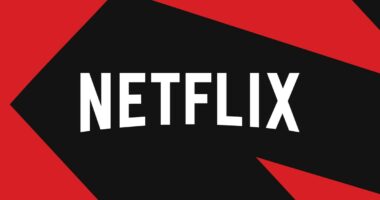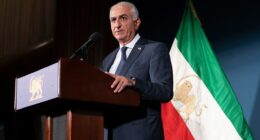Share this @internewscast.com
This piece is an excerpt from “Sources,” a newsletter by Alex Heath that delves into AI and the tech industry, exclusively shared with The Verge subscribers once a week.
On election night in New York City, I found myself at an unmarked building in the Meatpacking District around 8 PM.
Inside, a few dozen youthful employees of Kalshi navigated between clusters of desks, pizza boxes, and a large projector that broadcasted live updates of the day’s crucial races. The atmosphere was calm yet concentrated, with numbers rapidly changing on the screen as bets were adjusted in real time.
Next to the projector, co-founders Tarek Mansour and Luana Lopes Lara engaged in conversation with a CBS News crew, filming a segment for the following morning. CBS had just called the Virginia governor’s race, and Mansour highlighted that Kalshi’s market had anticipated the result nearly an hour in advance.
“We’re handling a billion dollars in transaction volume weekly now,” Mansour mentioned.
Contrary to my expectations of a bustling trading floor, the office was rather subdued. “I think it’s quieter than usual because there’s less volatility on this one,” Mansour explained to me later in a small conference room. The outcome of the New York mayor’s race had been heavily favored as a landslide. Zohran Mamdani was given about a 95 percent chance of victory on both Kalshi and its competitor, Polymarket, well before the polls closed. Nevertheless, approximately $100 million in trades regarding the New York race were processed through Kalshi that day.
In recent months, I’ve been tracking the rise of prediction markets and particularly Kalshi. Despite being federally licensed and much larger than Polymarket, it’s the latter that dominates the conversation in tech circles. Mansour wants to change that.

“Kalshi is arguably one of — maybe the — fastest-growing companies in America this year,” he told me. “We’re doing a billion dollars in transaction volume a week now.” Last year, the company saw just $300 million for the entire year. Mansour declined to share revenue figures, but even at a 1–2 percent fee per trade, the math suggests that business is booming.
Three factors have fueled that growth this year: securing a federal license to operate, expanding into sports betting, and striking a partnership with Robinhood to power prediction markets. While sports have been a major draw, Mansour’s ambitions go far beyond that.
“I think prediction markets are the next generation of the stock market,” he said. “They have media consequences. Everyone is an expert on something — everyone has opinions. These markets give those opinions a price.”
Kalshi called the New Jersey governor’s race 32 minutes before any news outlet
He hinted at new partnerships with media outlets and even entertainment event tie-ins. “We’re doing a lot with news networks in the coming months,” he said. “If the truth that comes out of these markets becomes mainstream, we’ve basically achieved our mission.”
Given how new prediction markets are, Kalshi and Polymarket still need to prove that they can remain reliable sources for predicting elections. Fox News took a reputational hit for accidentally calling Arizona for Joe Biden too early in 2020. Meanwhile, Kalshi and Polymarket brag about calling races even before results are in. If one of them gets a key race wrong, it could call into question the legitimacy of prediction markets.
With less than an hour left before polls closed, Mansour showed me Kalshi data from the New York mayoral race. Voters in the city were buying Andrew Cuomo contracts more heavily, but Mamdani dominated elsewhere. He was winning among women and younger traders; Cuomo’s support skewed older and male.
As we spoke, Kalshi called the New Jersey governor’s race at 8:20PM — 32 minutes before any news outlet. Mansour compared Kalshi’s role to that of financial markets: “Should the stock market replace bank analysts? No. Analysts provide input, and the market finds the real price. We’re doing the same thing for events.”
I asked whether people constantly text him for predictions, especially on an election night. He laughed. “Yeah. But I tell them: just look at the market. I don’t have any extra information.”
As 9PM neared, I assumed he’d stay in the office as polls closed. But as I stepped into my Uber, I saw him dart out and get into another car down the street.
He didn’t need to wait. Kalshi called the New York race for Mamdani one minute after polls closed and 36 minutes before any media outlet.









